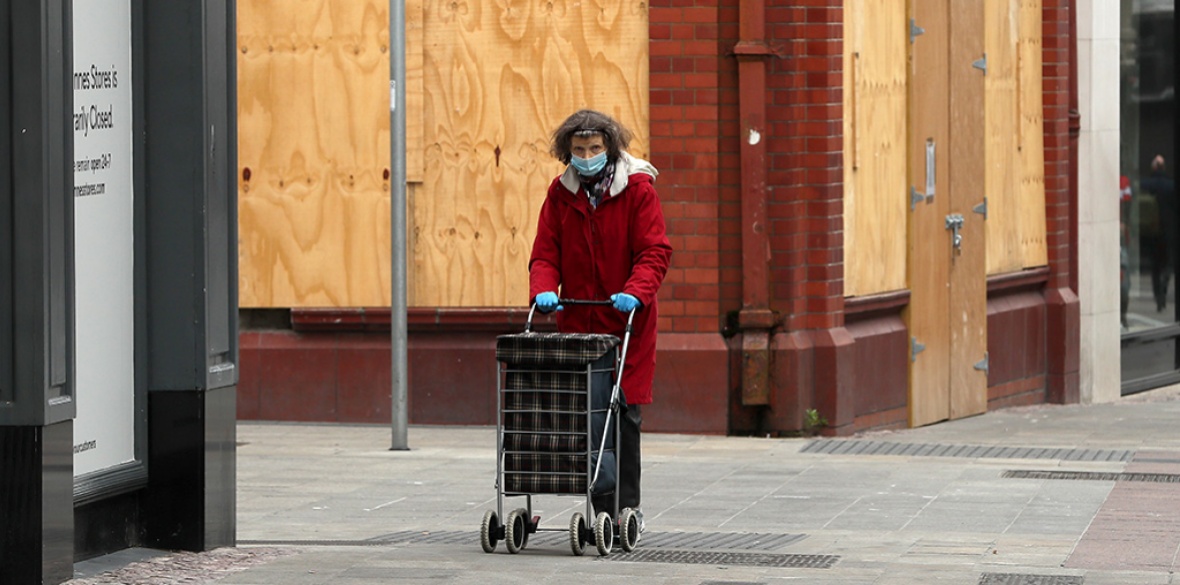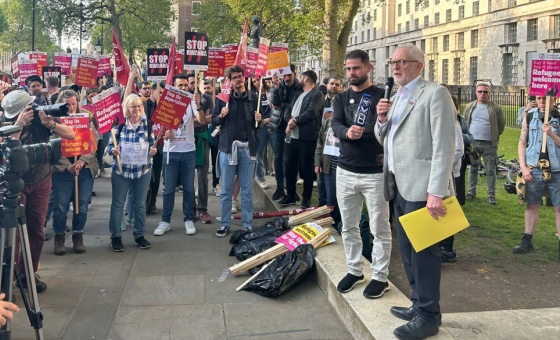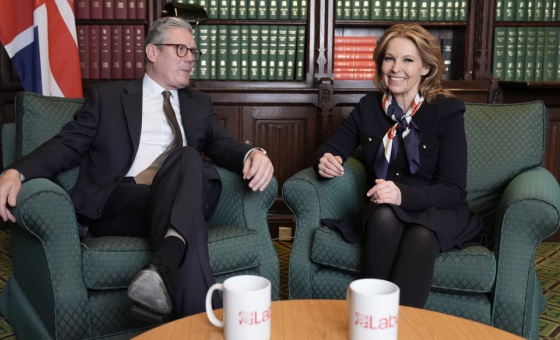This is the last article you can read this month
You can read more article this month
You can read more articles this month
Sorry your limit is up for this month
Reset on:
Please help support the Morning Star by subscribing here
THIS week retail overtook all other sectors of the economy for job losses. It is time that the government decided whether it was going to intervene to save our high streets or let them go to the wall.
It is time for the government to act before it is too late. What the retail sector needs now is a tripartite approach from the government, unions and employers. They all need to work together to develop a much-needed retail recovery plan.
We have long called for an industrial strategy for retail to help a sector that was already struggling before the coronavirus emergency. Now the situation is much worse.
There needs to be a fundamental reform of business rates. The government has launched a consultation about the future of business rates but this review is low key and, concerningly, the government is looking at tweaking the current system as opposed to adopting the radical changes needed to reflect how consumers buy goods in the 21st century.
Alongside business rates reform there must also be an immediate and comprehensive review of rental values and lease arrangements. In the short term measures are needed to prevent commercial landlords taking legal action for rental defaults during the lockdown period. In the medium term, a rebalancing of the relationship between landlords and tenants is required.
Long overdue and at the heart of the issues, bricks and mortar retailers face is a reform of UK tax law to ensure that companies pay their fair share of tax. The government must tackle tax avoidance and the use of offshore havens, with the aim of creating a level playing field between online and high street retailers.
We cannot revive our high streets if core services continue to be undermined, so there needs to be significant funding available for local authorities to invest in their local economy, transport networks and shopping areas.
Improving productivity requires investment in skills for retail workers, including through union learning and high-quality apprenticeships. This should include an in-depth assessment of emerging trends and potential skills shortages and gaps within the sector.
That investment in staff must be accompanied by a new deal for retail, distribution and home delivery workers based around a real living wage, an end to insecure employment and a fundamental reform of workplace rights.
In the last fortnight we have seen huge job loss announcements at two major high street retailers, Marks & Spencer and Debenhams.
Marks & Spencer refuses to recognise and open up a dialogue with Usdaw, despite us having a significant membership that needs the advice and support of an independent trade union now more than ever.
M&S have been on a long programme of job cuts and store closures and we again urge management to abandon their long-held resistance to allowing Usdaw represent the staff. It is simply unjust that the company has made the decision not to engage with a trade union. The staff are telling us they want Usdaw to represent them, it should be their choice.
Debenhams has been in turmoil for many years, but the company and now the administrators refuse to engage with Usdaw. The staff are being treated appallingly and we don’t believe the law is being complied with.
Last week redundancies were made by conference call, with no meaningful consultation or proper notice period, as required by law. Yet again it appears that the taxpayer will have to pick up the bill for what is owed to sacked staff because administrators are flouting the law.
It is absolutely disgraceful that businesses can get away with this in the 21st century.
The government needs to end the perverse financial incentive for employers and administrators not to comply with their legal obligations on collective redundancy consultation.
As Usdaw looks past the Covid-19 crisis, it is time for the government, employers and the public to recognise that too many workers have been undervalued for too long. They deserve a new deal.
In this new deal, the minimum wage should be at least £10 per hour for all workers. This wage can go some way to provide help in relieving the financial burden faced by too many low-paid working people.
There should also be improved job security with minimum 16-hour contracts, for those who want it, which ensures that work is offered on a meaningful basis. Hours should only be reduced with the express agreement of the worker.
Regular hours enable workers to plan their lives and finances, so contracts must be based on normal hours of work. Those regularly working over their contracted hours should have those additional hours guaranteed.
Abuse, threats and assaults should not be part of the job. The current law fails to protect retail staff and the government must ensure stiffer penalties for those who abuse staff.
Workers should not face debt because of illness. Usdaw is calling for statutory sick pay to be paid from day one and reflect average earnings for all workers.
Universal credit has been besieged by problems ever since it was launched. Usdaw is calling for the five-week wait to be scrapped and for the system as a whole to be overhauled.
Most underpaid front-line key workers are women. These essential roles have been undervalued and underpaid for too long. Women workers need equal pay and they need decent pay, along with new family-friendly rights that support parents and carers to juggle work and family life.
Usdaw backs Labour’s fight for jobs, businesses and high streets, the government has been too slow to intervene and that must change if we are to save our shops. There must also be lasting and fundamental changes to the way society views our lowest paid workers. We need a new deal for the workers.
Further information on Usdaw’s New Deal for Workers campaign can be found at: http://mstar.link/newdeal










